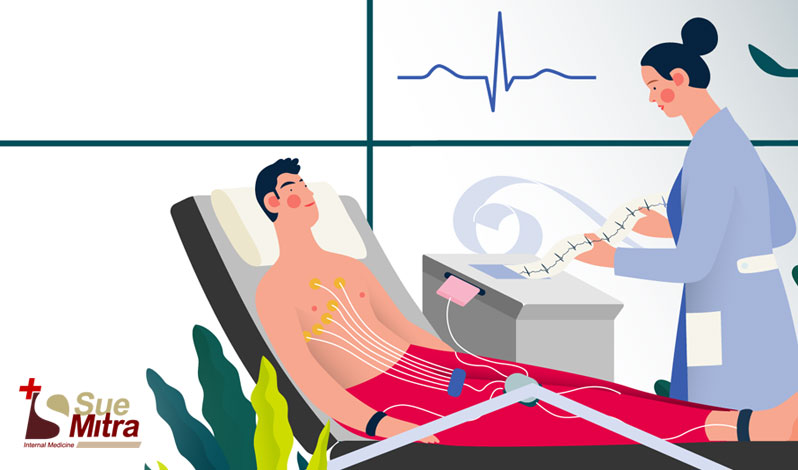
11, Apr 2023
What is EKG?
An electrocardiogram (EKG or ECG) is a medical test that records the electrical activity of the heart. The test is used to detect heart problems, such as abnormal heart rhythms (arrhythmias), heart damage from a previous heart attack, coronary artery disease, and other heart conditions.
1. An EKG is a Painless Test. An EKG is a non-invasive test, meaning no physical contact with the patient is necessary. The test is also painless, as it does not involve any needles or cuts in the skin.
2. An EKG Records Electrical Signals from the Heart. An EKG machine uses electrodes attached to the skin to record the electrical signals that travel through the heart. These signals are then recorded and displayed on a monitor.
3. An EKG Can Detect Heart Abnormalities. An EKG machine can detect abnormal heart rhythms or other abnormalities in the heart. These abnormalities can indicate a variety of conditions, such as a heart attack or coronary artery disease.
4. EKGs Can Help Diagnose Heart Conditions. An EKG can help diagnose and monitor a variety of heart conditions, such as arrhythmias, heart attack and coronary artery disease.
5. An EKG Can Help Monitor the Effectiveness of Treatment. An EKG can be used to monitor the effectiveness of treatment for heart conditions. This can include monitoring medications, pacing devices, and other treatments.
6. An EKG Can Also Help Detect Other Medical Conditions. An EKG can detect other medical conditions that may be affecting the heart, such as anemia, thyroid disease, diabetes, and electrolyte imbalances.
7. An EKG Can Detect Abnormalities in Blood Flow. An EKG can detect abnormalities in the flow of blood through the heart, such as narrowing of the arteries (atherosclerosis) or an enlarged heart.
8. An EKG Can Detect Abnormalities in the Heart’s Structure. An EKG can detect abnormalities in the structure of the heart, such as the presence of an aneurysm or septal defect.
9. An EKG Is Used in Emergency Situations. An EKG can be used to quickly diagnose a heart attack or other life-threatening condition in an emergency situation.
10. An EKG Can Help Detect an Abnormal Heart Rhythm. An EKG can help detect an abnormal heart rhythm, such as atrial fibrillation or ventricular tachycardia.
11. An EKG Can Help Determine the Cause of Chest Pain. An EKG can help determine the cause of chest pain, such as a heart attack or angina.
12. An EKG Can Help Monitor the Health of the Heart. An EKG can help monitor the health of the heart over time, such as when it is used to monitor the effectiveness of treatment for a heart condition.
13. An EKG Is Safe and Accurate. An EKG is a safe and accurate way to diagnose and monitor a variety of heart conditions.
Dr. Sue Mitra is a board-certified cardiologist and electrophysiologist who specializes in the diagnosis and treatment of heart rhythm disorders. She is highly experienced in the use of EKG to diagnose and monitor a variety of heart conditions. Dr. Mitra is committed to providing her patients with the highest quality of care and is dedicated to helping them achieve the best possible outcomes.
Conclusion
An EKG is a non-invasive, painless test that can be used to diagnose and monitor a variety of heart conditions. It is a safe and accurate way to detect abnormalities in the heart’s electrical activity, blood flow, and structure. An EKG can also be used to help detect the cause of chest pain or an abnormal heart rhythm. With the help of an experienced physician, an EKG can be a powerful tool in the diagnosis and monitoring of heart conditions.
Dr. Sue Mitra and her staff strive to offer their patients the best care, advice and services available in the medical field with the goal to keep patient healthy & happy.

Dr. Sue Mitra is board certified in international medicine. She is seen here with a Cologuard, which is a noninvasive colon cancer screening test. (Photo by: Tim Shortt/Florida Today)